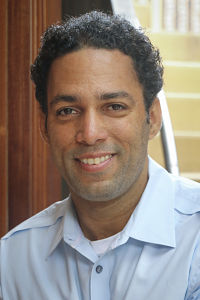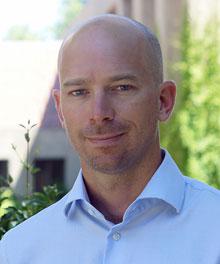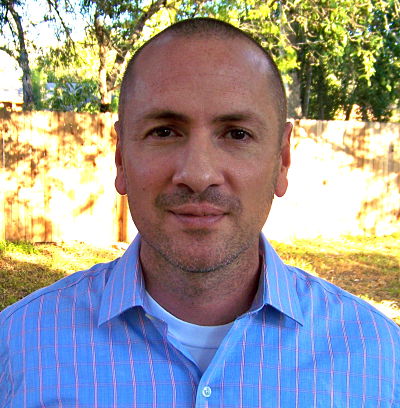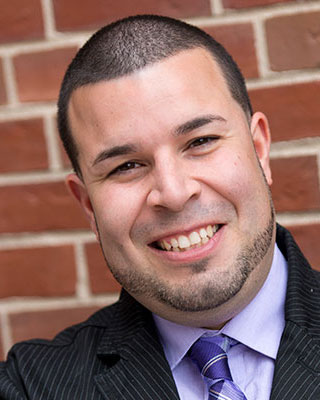








Adam Banks
Professor of Education and Faculty Director of the Stanford University Program in Writing and Rhetoric
Adam Banks comes to the GSE from the University of Kentucky where he was Professor of Writing, Rhetoric and Digital Studies. He is the Chair of the Conference on College Composition and Communication. Prior to arriving at Kentucky he served on the faculty of the Writing Program at Syracuse University. In addition to these academic appointments, he served jointly with Andrea Lunsford as the Inaugural Rocky Gooch Visiting Professors for the Bread Loaf School of English, and has been invited to short term visiting scholar roles at Spelman College, Ohio State, and MIT. He is the author of Digital Griots: African American Rhetoric in a Multimedia Age and Race, Rhetoric and Technology: Searching for Higher Ground, which was awarded the 2007 Best Book in Computers and Writing Award.

Patricia Bromley
Assistant Professor of Education, International and Comparative Education
Patricia Bromley comes to Stanford from the University of Utah where she was Assistant Professor of Political Science and where she taught in the Master of Public Administration program. She received a PhD from Stanford’s International and Comparative Education program in 2011 and holds an MSc in International Studies from Rutgers University and a BA from the University of British Columbia in her hometown of Vancouver. Tricia’s research spans a range of fields including comparative education, organization theory, the sociology of education, and public administration and policy. Her central research agenda examines changes in civic education in countries around the world.

Benjamin Domingue
Assistant Professor of Education, Educational Measurement and Assessment
Ben Domingue is a quantitative social scientist with expertise in a variety of areas including educational measurement and evaluation, social network analysis, and biodemography. His research in education has focused on the construction and use of test score scales. Alongside his research on the use of test score scales, he has worked with a variety of public agencies on projects related to the crafting of policies which use test scores for the purposes of school or teacher evaluation. One example of this work is his collaboration with ICFES (the national testing agency in Colombia) to develop an evaluation system for Colombian universities. Outside of education, he is interested in social network and genetics, primarily as they are related to public health. He received his PhD from the University of Colorado Boulder's School of Education in 2012 and comes to Stanford University having worked as a research associate at the Institute of Behavioral Science (University of Colorado) and a visiting researcher at the Population Research Center (University of Texas at Austin).

Sarah Levine
Assistant Professor of Education, Adolescent Literacy
Sarah Levine comes to Stanford from the National College of Education at National-Louis University in Chicago where she was an assistant professor of literacy and language. Her research focuses on the teaching and learning of literary interpretation and writing in under-resourced urban high schools, with an emphasis on the links between in- and out-of-school interpretive practices. She is also interested in ways that digital media can be used as frameworks for teaching reading and writing to middle and high school students. Her primary goal as an academic is to help shape the teaching and learning of secondary English teachers and contribute to research that will help students become independent readers and writers.

Prashant Loyalka
Assistant Professor (Research) of Education, International Comparative Education
Prashant Loyalka has been a Center Research Fellow at the Freeman Spogli Institute for International Studies and a faculty member of the Rural Education Action Program at Stanford University since 2012. His research focuses on examining and addressing inequalities in the education of youth. His research agenda is also concerned with understanding and improving the quality of education received by youth in large developing economies, including China, Russia, and India. In the course of addressing educational inequalities, Prashant examines the consequences of tracking, financial and informational constraints, and psychological factors of both students and teachers in highly competitive education systems. His work on understanding educational quality is built around research that assesses and compares student learning in higher education, high school and (the later stages of) compulsory schooling. He also evaluates programs/policies that seek to improve student outcomes.

Ramón Antonio Martinez
Assistant Professor of Education, Race and Education
Ramón Antonio Martínez comes to Stanford University from the Department of Curriculum and Instruction at the University of Texas at Austin where he was assistant professor of Language and Literacy Studies. There he was affiliated with the Bilingual/Bicultural Education program and the Department of Mexican American and Latina/o Studies. His research explores the intersections of language, race, and ideology in the public schooling experiences of students of color, with a particular focus on bi/multilingual Chicana/o and Latina/o children and youth. Martínez examines how students’ everyday language practices overlap with the forms of language and literacy privileged in academic settings, how competing ideologies inform language policy and classroom practice in urban schools, and how pre-service teachers are prepared to teach culturally and linguistically diverse learners. He has published articles in journals such as Linguistics and Education, Research in the Teaching of English, Anthropology & Education Quarterly, Teachers College Record, and Review of Research in Education.

Jonathan Rosa
Assistant Professor of Education, Race and Education
Jonathan Rosa comes to Stanford University from the University of Massachusetts Amherst where he was an Assistant Professor in the Department of Anthropology. At UMass he held affiliations with the Language, Literacy, and Culture Concentration in the College of Education, as well as the Center for Latin American, Caribbean, and Latina/o Studies. His community-based research focuses on educational inequality, racial marginalization, and linguistic stigmatization in urban contexts. He collaborates with schools and communities to track these phenomena and develop tools for understanding and eradicating the forms of disparity to which they correspond. In addition to his formal scholarly work, Rosa is an ongoing participant in public intellectual projects focused on race, education, language, (im)migration, and U.S. Latinas/os. His work has been featured in scholarly journals such as American Ethnologist, Journal of Linguistic Anthropology, Anthropology News, and Journal of Adolescent and Adult Literacy, as well as media outlets such as MSNBC, NPR, CNN, and Univision.

Guillermo Solano-Flores
Professor of Education, Educational Measurement and Assessment (1/1/2016)
Guillermo Solano-Flores is Professor of Bilingual Education and English as a Second Language at the School of Education of the University of Colorado Boulder and will join the GSE at the beginning of winter quarter. He specializes in educational assessment and the linguistic and cultural issues that are relevant to both international test comparisons and the testing of cultural and linguistic minorities. His research is based on the use of multidisciplinary approaches that use psychometrics, sociolinguistics, semiotics, and cognitive science in combination. He has conducted research on the development, translation, localization, and review of science and mathematics tests. He has been principal investigator in several National Science Foundation-funded projects that have examined the intersection of psychometrics, semiotics, and linguistics in testing. He is the author of the theory of test translation error, which addresses testing across cultures and languages. Also, he has investigated the use of generalizability theory—a psychometric theory of measurement error—in the testing of English language learners and indigenous populations. He has advised Latin American countries on the development of national assessment systems. Also, he has been the advisor to countries in Latin America, Asia, Europe, Middle East, and Northern Africa on the adaptation and translation of performance tasks into multiple languages. Current research projects examine academic language and testing, formative assessment practices for culturally-diverse science classrooms, and the design and use of illustrations in international test comparisons and in the testing of English language learners.
Subscribe to our monthly newsletter.
Stanford Graduate School of Education
482 Galvez Mall
Stanford, CA 94305-3096
Tel: (650) 723-2109
© Stanford University, Stanford, California 94305.



